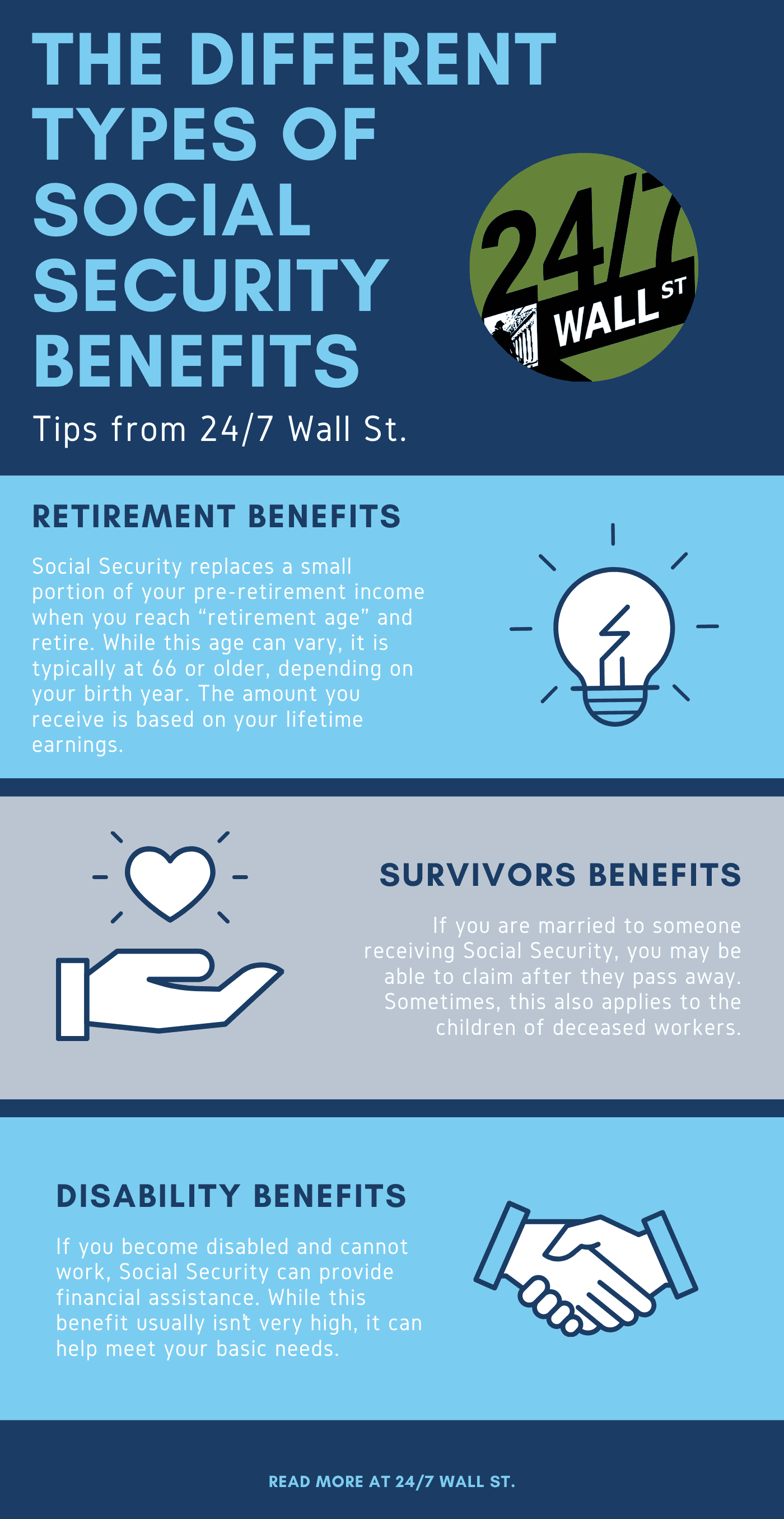Personal Finance
9 in 10 Americans Says They Want Congress to Shore Up Social Security - Here's How They Could Do It

Published:

24/7 Wall St. Key Takeaways:
Social Security provides benefits to millions of Americans, and according to a recent report by the National Institute on Retirement Security, nearly 90% of Americans believe that shoring up Social Security should be a top priority for Congress, regardless of federal budget deficits.
Social Security is expected to face future funding deficits as early as 2035, according to the Social Security Administration. Many Americans want the program strengthened now for the long term.
The rest of this article will explore exactly how Congress might do that.

Social Security helps keep seniors out of poverty. It’s that simple. Without Social Security, 38.7% of older adults would be below the poverty line, but with Social Security, that number drops to 10.2%. Many rely on Social Security into retirement, and that isn’t even covering all of the disabled Americans who rely on it, too. It’s a huge part of America’s economic security.
A very popular idea, according to the report, is raising the amount workers and employers contribute to Social Security. There is broad support for this approach, and many Americans agree that boosting contributions could help stabilize the program.
This change would ensure more funds are collected upfront, potentially delaying or eliminating future funding gaps.
On the other hand, raising the retirement age is a controversial option. The survey reveals that Americans are split on this issue, with 47% opposing further increases and 44% being open to the idea.
This would reduce the lifetime benefits for future retirees but also force Americans to work longer – something that not all of them can do. It’s unlikely that this issue would go very far, considering how near-even the split is.
Expanding benefits is another area where public opinion is mixed. Just over half of Americans (52%) support expanding Social Security, though the support is divided. Twenty-five percent believe benefits should be expanded for all Americans, while 27% think benefits should be increased for everyone except wealthier households.
This change is very popular, as Social Security doesn’t keep everyone out of poverty. However, it doesn’t fix the funding issue and would likely only make it worse.
Currently, income above a certain threshold isn’t taxed for Social Security. Raising this cap could increase the revenue and help keep the program alive for a little longer. This means wealthier individuals would pay more, while lower-income individuals would not.
Some policymakers have proposed adjusting the way benefits are calculated. There are many ways this could be done. Some recommend reducing the payout for higher-income earners to preserve funds for those with a greater need, for instance.
Currently, everyone gets Social Security, no matter how much they make. However, there is a proposal to means-test the benefits, which means that benefits would only be available to those under a certain income. This would provide benefits to those who need them most, but it would lead to more bureaucratic hoops that retirees have to jump through.
Thank you for reading! Have some feedback for us?
Contact the 24/7 Wall St. editorial team.